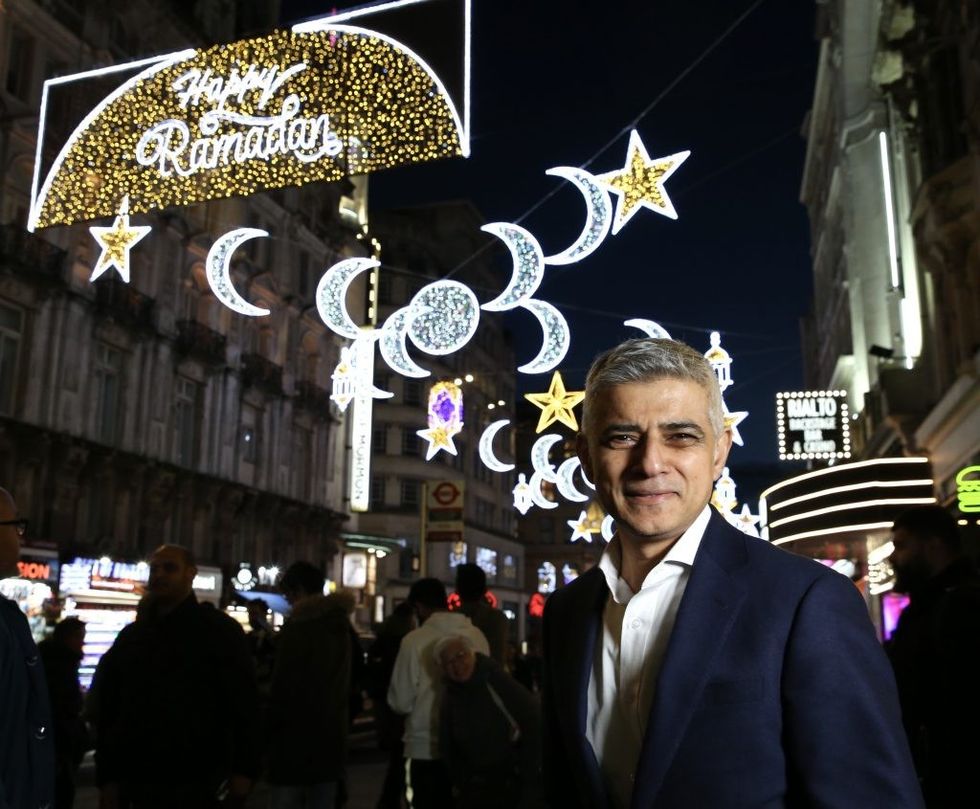Ramadan Lights, in partnership with the Heart of London Business Alliance, the first Business Improvement District elected in central London has introduced UK's inaugural street illuminations to celebrate Ramadan, the most sacred month of the Islamic calendar.
This groundbreaking lighting spectacle, the first of its kind in the UK and Europe, will adorn Coventry Street, the thoroughfare linking Piccadilly Circus to Leicester Square, from March 22 to April 21, 2023.
Throughout the entire month, a section of Piccadilly Circus will be aglow with 30,000 LED lights, crafted into 61 unique moons and lanterns, and featuring two gateway crossings.
This impressive display is a tribute to the community, by the community stated a press release. As part of an eco-conscious initiative, the lights are constructed with energy-efficient LED bulbs and completely recyclable aluminium frames. Any carbon emissions generated during the transportation, setup, and dismantling of the exhibit will be offset.
Sadiq Khan, the mayor of London, expressed his pleasure, saying, “I’m delighted that London is the first major European city to host a spectacular light display to mark Ramadan. Thanks to Ramadan Lights, for the first time ever the West End will be lit up by a fantastic display of 30,000 lights, a true symbol of how our capital celebrates our diversity. I would like to extend my warmest wishes to all Londoners and those around the world who are observing the holy month of Ramadan.”
The founder of Ramadan Lights, Aisha Desai remarked that she was captivated by the festive lights during her childhood. As a proud Muslim and Londoner, she aimed to not only bring that same enchantment to her community but also to break down barriers for other creative young Muslims.
Desai hoped that by witnessing Ramadan Lights lining one of London's most renowned streets throughout the entire month of Ramadan, it would instill a belief in others that anything is possible.
Rahima Aziz, representing the Aziz Foundation, expressed enthusiasm for their support of Ramadan Lights and said, “The Foundation is thrilled to support Ramadan Lights, a unique initiative that will create a festive ambience for the multi-cultural city of London. The lights will act as a beacon of solidarity, reminding us that Ramadan is a time of charity and community.”
Ros Morgan, the CEO of the Heart of London Business Alliance, declared that the organisation was pleased to assist those participating in Ramadan “by transforming the area with the lights display so excellently coordinated by the Ramadan Lights team”.
He added, “Activations such as this are essential to ensuring the West End is an inclusive, world-class destination. In addition to our creative campaigns, we work hard to keep our streets safe, clean, and accessible through an area management programme and regular place shaping initiatives. We are thankful for the support of all our partners in keeping the West End thriving.”
As the Chair of Algbra X, Zeiad Idris expressed immense pride in supporting the Ramadan Lights programme as a sponsor, collaborating with co-sponsors Heart of London Business Alliance and Aziz Foundation to bring the display to life in the heart of central London.
Idris described the lights as a genuinely iconic enhancement to this year's Ramadan celebrations and expressed delight in sharing this moment with numerous individual contributors from the community who also made contributions towards the project.
Ramadan Lights was made possible with the support of several organisations like the Aziz Foundation, which assists British Muslims in effecting positive change in their communities and beyond; the Heart of London Business Alliance, which aided in the realisation of the lights; and Algbra X, an organisation that encourages communities to realize their full potential.
During Ramadan, Muslims engage in spiritual reflection and growth, helping those in need and spending time with loved ones. It is also a time when Muslims across the globe observe a fast, during daylight hours.




















